13 Most Studied and Revered Speeches in Modern History
Throughout history, certain speeches have transcended their original contexts to become defining moments of rhetoric, leadership, and social transformation. These speeches, delivered by leaders, revolutionaries, and visionaries, continue to be analyzed, quoted, and memorized across generations. They have influenced political movements, shaped ideologies, and provided hope during critical times.
In the article below, World History Edu explores some of the most studied and revered speeches in modern history, their impact, and why they continue to be relevant.
The Gettysburg Address – Abraham Lincoln (1863)

A picture of Abraham Lincoln in 1863.
One of the most iconic speeches in American history, Abraham Lincoln’s Gettysburg Address, was delivered on November 19, 1863, at the dedication of the Soldiers’ National Cemetery in Pennsylvania. Lasting just over two minutes and comprising only 271 words, Lincoln’s speech redefined the meaning of democracy and the Civil War’s purpose.
In his opening line, “Four score and seven years ago,” Lincoln referenced the founding of the United States in 1776. He framed the Civil War as a test of whether a nation “conceived in Liberty, and dedicated to the proposition that all men are created equal” could endure. He honored the soldiers who fought at Gettysburg, declaring that their sacrifice should inspire the living to ensure that “government of the people, by the people, for the people, shall not perish from the earth.”
Despite its brevity, the Gettysburg Address is one of the most analyzed speeches due to its profound use of rhetoric, symbolism, and its emphasis on national unity. It continues to be studied in schools and remains a cornerstone of democratic ideals.
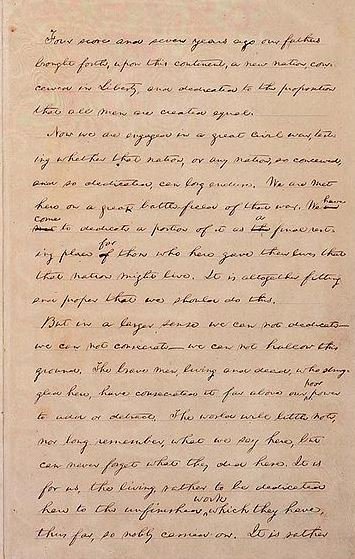
American statesman, John Hay’s copy of the Gettysburg Address. This copy includes handwritten corrections made by Lincoln.
READ ALSO: 12 Most Influential Presidents of the United States
I Have a Dream – Martin Luther King Jr. (1963)

A 1964 picture of Martin Luther King Jr.
Delivered on August 28, 1963, during the March on Washington for Jobs and Freedom, Martin Luther King Jr.’s “I Have a Dream” speech became a defining moment of the American Civil Rights Movement. Standing in front of the Lincoln Memorial, King spoke to over 245,000 people, calling for racial equality and justice.
His speech combined biblical imagery, references to the U.S. Constitution, and powerful rhetoric to highlight the plight of African Americans. The most memorable part of the speech came when he departed from his prepared text and declared:
I have a dream that one day this nation will rise up and live out the true meaning of its creed: We hold these truths to be self-evident, that all men are created equal.
Dr. King’s speech is widely studied for its rhetorical devices, including repetition (“Let freedom ring”), metaphors (“the sweltering summer of the Negro’s legitimate discontent”), and parallelism. It remains one of the greatest speeches on civil rights and democracy.
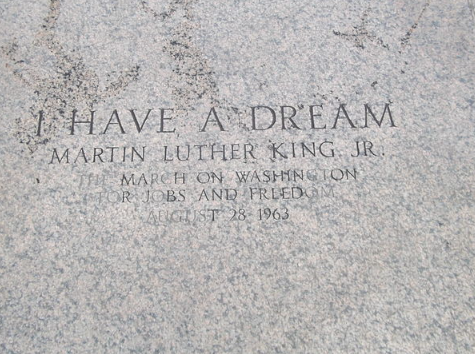
The steps of the Lincoln Memorial from which King delivered the speech is commemorated with the “I have a dream” line inscription
READ ALSO: 14 Major Events of the Civil Rights Movement
We Shall Fight on the Beaches – Sir Winston Churchill (1940)
During the early stages of World War II, the British faced the possibility of a Nazi invasion. On June 4, 1940, Prime Minister Winston Churchill addressed the House of Commons, delivering one of the most defiant wartime speeches in history.
Churchill’s “We Shall Fight on the Beaches” speech aimed to rally the British people following the Dunkirk evacuation, in which over 300,000 Allied soldiers were rescued. He declared:
We shall go on to the end, we shall fight in France, we shall fight on the seas and oceans, we shall fight with growing confidence and growing strength in the air, we shall defend our Island, whatever the cost may be.
The speech is renowned for its powerful rhetoric, repetition, and unwavering determination. Churchill’s delivery exuded confidence and resilience, ensuring that Britain remained steadfast in its resistance against Nazi Germany. His words inspired both civilians and soldiers, reinforcing national unity during one of the darkest periods in modern history.
Today, Churchill’s speech is studied as an example of persuasive wartime oratory and effective leadership in crisis.
READ ALSO: 10 Greatest Prime Ministers of the United Kingdom
The Speech at the Berlin Wall – John F. Kennedy (1963)
On June 26, 1963, U.S. President John F. Kennedy delivered his historic speech in West Berlin, reinforcing American support for West Germany during the Cold War. The speech, delivered at the height of tensions between the United States and the Soviet Union, sought to reassure West Berliners that they would not be abandoned.
Kennedy’s most famous line, “Ich bin ein Berliner” (“I am a Berliner”), became a symbol of solidarity with the people of Berlin who were divided by the Berlin Wall. He contrasted the freedoms enjoyed in the West with the oppression of the Communist East, stating, “All free men, wherever they may live, are citizens of Berlin.”
This speech is significant for its strategic rhetoric, Cold War diplomacy, and its role in strengthening U.S.-German relations. It is studied for its concise yet impactful messaging, effective use of repetition, and its ability to inspire international unity.
READ ALSO: 8 Most Important Achievements of John F. Kennedy
Kwame Nkrumah’s Independence Speech (1957)
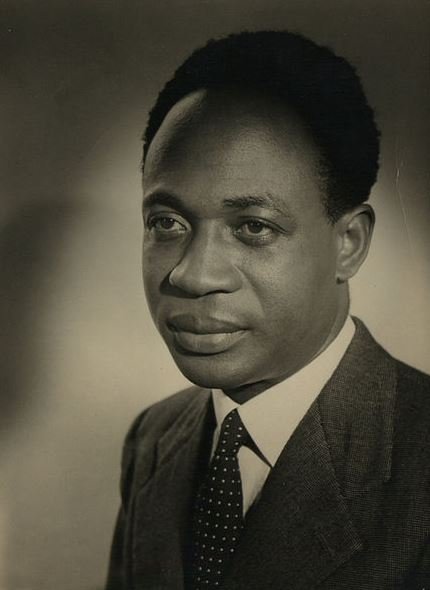
Kwame Nkrumah (1909 – 1972)
On March 6, 1957, Kwame Nkrumah delivered Ghana’s independence speech, marking the country’s freedom from British colonial rule. This moment was historic as Ghana became the first African country to gain independence.
Nkrumah declared:
At long last, the battle has ended! And thus, Ghana, your beloved country, is free forever.
He also emphasized that Ghana’s independence was not just for itself but for the liberation of all African nations:
Our independence is meaningless unless it is linked up with the total liberation of the African continent.
Nkrumah’s speech set the stage for Pan-Africanism and inspired many African nations to fight for independence. His words are studied for their visionary approach, unifying tone, and historical significance in Africa’s decolonization.
READ ALSO: Greatest African Leaders of All Time
The Gettysburg Address of the 20th Century – Ronald Reagan’s Challenger Speech (1986)
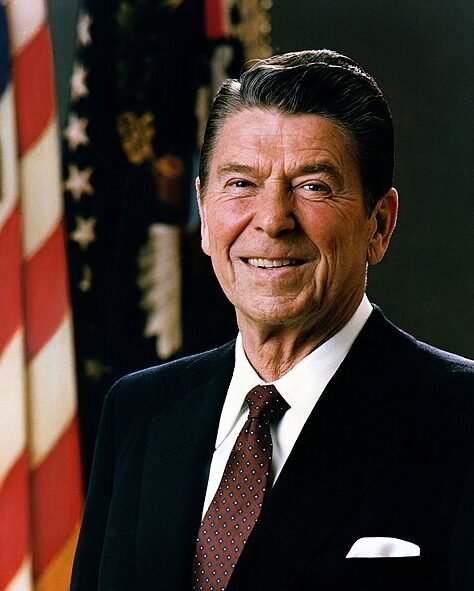
A photograph of Reagan during the early 1980s.
Following the tragic explosion of the Space Shuttle Challenger on January 28, 1986, U.S. President Ronald Reagan addressed the nation to offer comfort and pay tribute to the seven astronauts who lost their lives. His speech, now regarded as one of the greatest presidential addresses, was deeply emotional yet hopeful.
Ronald Reagan’s speech on the Space Shuttle Challenger disaster is frequently studied for its use of pathos, its ability to console without politicizing the tragedy, and its masterful delivery.
Reagan reassured the American people, stating, “The future doesn’t belong to the fainthearted; it belongs to the brave.” He honored the astronauts, referencing poet John Gillespie Magee Jr.’s words, “They slipped the surly bonds of Earth to touch the face of God.” His calm and empathetic tone helped unify a grieving nation. Historians like to site the Reagan’s speech as an example of how leaders should communicate during national crises.
The Quit India Speech – Mahatma Gandhi (1942)

Mahatma Gandhi during the early 1930s.
On August 8, 1942, during India’s struggle for independence from British rule, Mahatma Gandhi delivered his Quit India Speech at the All India Congress Committee session in Bombay. His speech called for nonviolent resistance and immediate British withdrawal from India.
Gandhi’s key declaration, “Do or die,” became the rallying cry of the Quit India Movement. He urged Indians to remain nonviolent but steadfast in their demand for independence. He also appealed to the British people, stating that their departure would be in both nations’ best interests.
This speech is studied for its moral authority, persuasive rhetoric, and its role in mobilizing a mass movement. It remains a landmark in anti-colonial resistance and the power of nonviolent protest.
READ ALSO: Most Influential Indians and Their Contributions
The Woman’s Rights Speech – Sojourner Truth (1851)
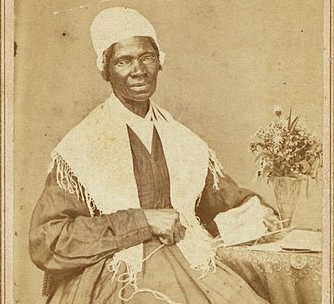
Sojourner Truth
In 1851, at the Women’s Rights Convention in Ohio, former enslaved woman Sojourner Truth delivered her famous “Ain’t I a Woman?” speech, advocating for both racial and gender equality.
She challenged societal norms by comparing the strength and labor of enslaved women to that of men, asking, “Ain’t I a woman?” She rejected the notion that women were weak and demanded equal rights for all.
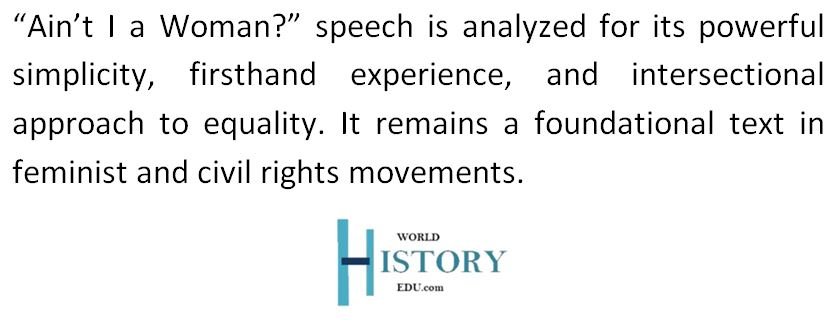
READ ALSO: Greatest African-American Civil Rights Activists of All Time and their Achievements
Nelson Mandela’s Speech at the Rivonia Trial (1964)

A 1994 photo of Mandela casting his vote.
Facing the death penalty for his anti-apartheid activities, Nelson Mandela delivered his famous Rivonia Trial Speech on April 20, 1964. His closing words became one of the most quoted statements in history:
I have walked that long road to freedom. I have cherished the ideal of a democratic and free society in which all persons live together in harmony and with equal opportunities. It is an ideal for which I hope to live for and to see realized. But, my Lord, if needs be, it is an ideal for which I am prepared to die.
This speech is significant for its courage, moral conviction, and defiance against injustice. It is studied for its rhetorical power and its influence in shaping South Africa’s transition from apartheid to democracy.
Gamal Abdel Nasser’s Alexandria Speech (1956) – The Nationalization of the Suez Canal
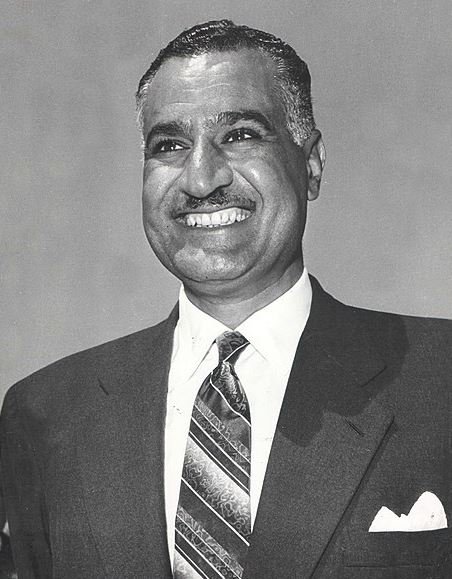
A 1962 picture of Gamal Abdel Nasser
One of the most defining moments in Arab history was Gamal Abdel Nasser’s speech on July 26, 1956, in Alexandria, announcing the nationalization of the Suez Canal.
Standing before a massive crowd, Nasser declared:
We shall reclaim our sovereignty, and we shall not bow to colonialism. The Suez Canal belongs to the people of Egypt.
This speech challenged Western dominance, particularly British and French control over the Suez Canal, and asserted Egyptian independence and Arab dignity. Nasser’s speech ignited a crisis known as the Suez Crisis, but it also cemented him as the leader of Pan-Arabism.
Nasser’s speech is widely studied for its strong nationalist tone, defiance against imperialism, and its impact on Middle Eastern geopolitics.
Barack Obama’s “A More Perfect Union” Speech (2008)

An official portrait of Obama in 2012.
During his 2008 presidential campaign, Barack Obama delivered his “A More Perfect Union” speech, addressing race relations in the United States. Given in response to controversy surrounding his former pastor, Reverend Jeremiah Wright, Obama used the opportunity to discuss America’s racial history and the need for unity.
He emphasized that America was “constantly perfecting itself”, acknowledging racial injustices while urging Americans to move forward together. His speech was praised for its balance, depth, and honesty.

Deng Xiaoping’s Speech on Reform and Opening-Up (1978)
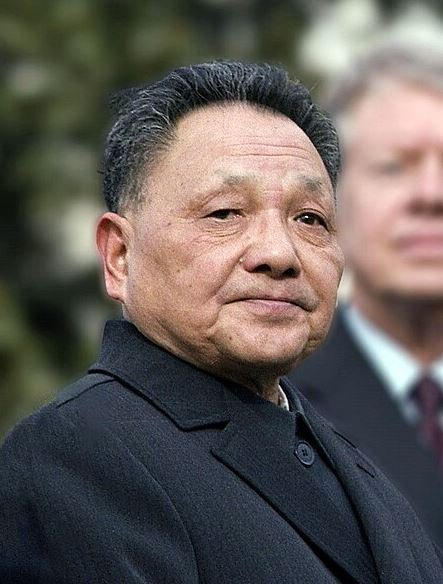
A photo of Deng Xiaoping, taken in 1979.
In December 1978, Deng Xiaoping, the architect of China’s economic transformation, delivered a speech that marked the beginning of China’s economic reforms.
He stated:
To get rich is glorious. It doesn’t matter if a cat is black or white, as long as it catches mice.
Deng emphasized pragmatism over ideology, signaling a shift from Maoist communism to market-driven socialism. His policies opened China to foreign investment, modernized industries, and lifted millions out of poverty.
This speech is a turning point in economic history, studied for its pragmatic approach, strategic vision, and impact on global capitalism.
Lee Kuan Yew’s Speech on Singapore’s Separation from Malaysia (1965)
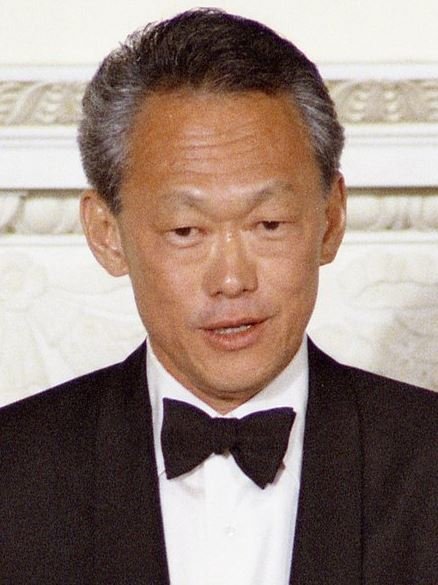
This photo of Lee Kuan Yew was taken in 1975
On August 9, 1965, Lee Kuan Yew, Singapore’s founding Prime Minister, delivered an emotional speech following Singapore’s unexpected separation from Malaysia.
Fighting back tears, he stated:
For me, it is a moment of anguish. My whole life, I have believed in merger and unity. But we must now go on, we are determined to survive.
Lee’s speech conveyed both grief and resilience, acknowledging the challenges of nation-building but vowing to transform Singapore into a thriving independent state.
Lee Kuan Yew’s speech is a case study in leadership during crisis, pragmatic governance, and the ability to turn adversity into success.



























